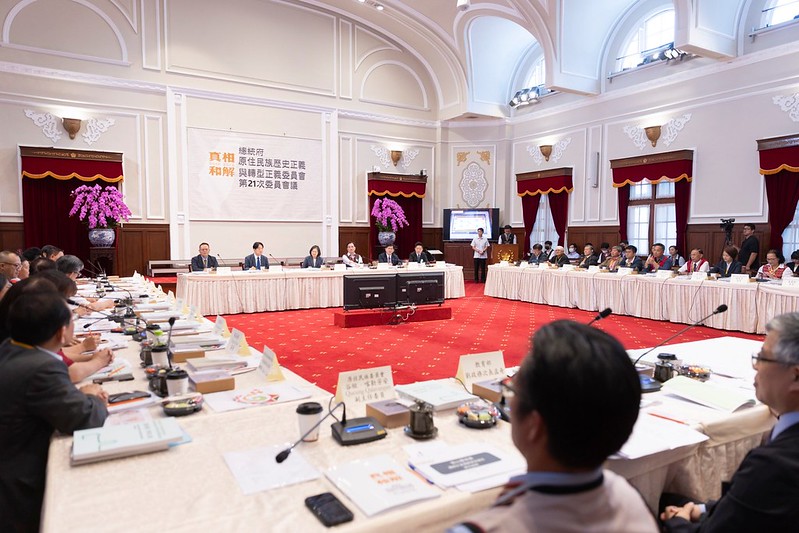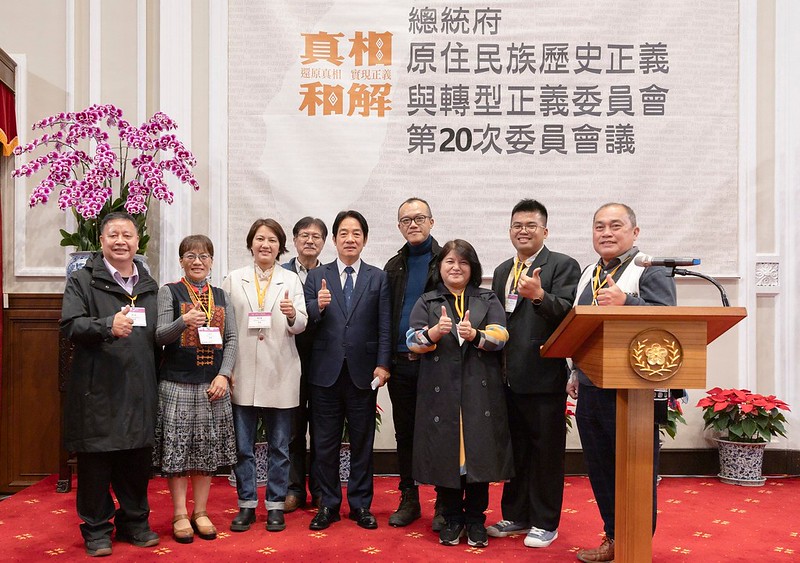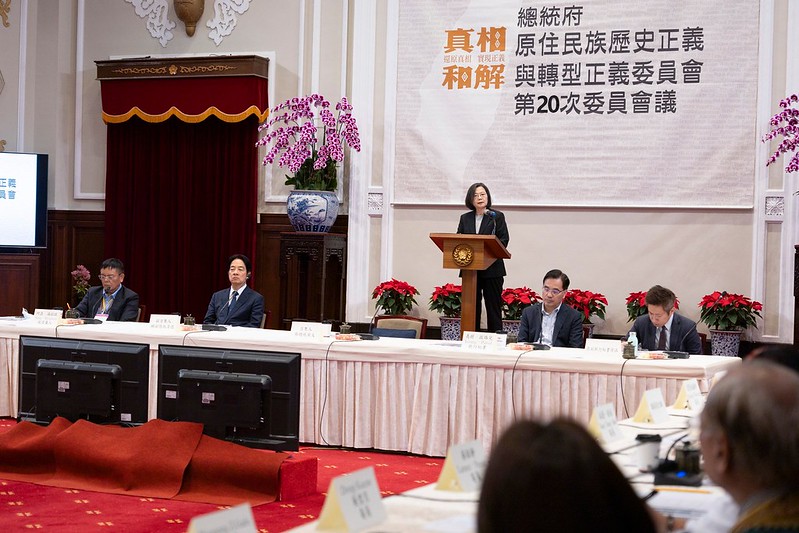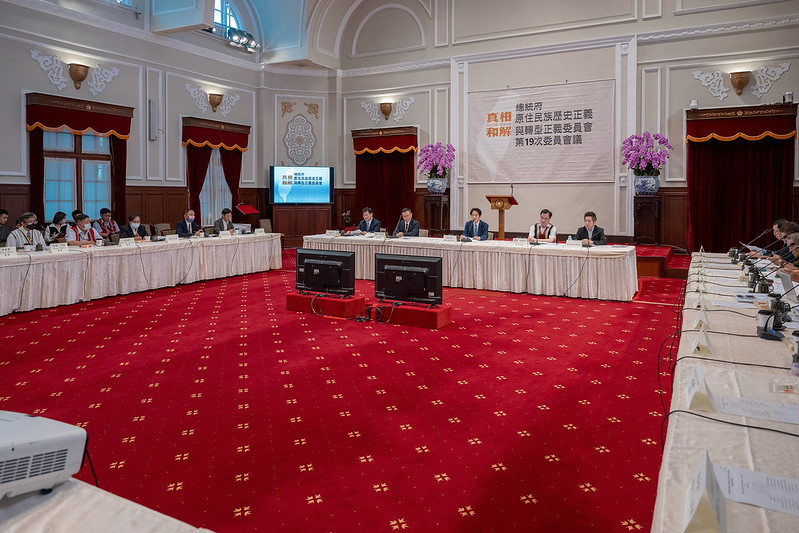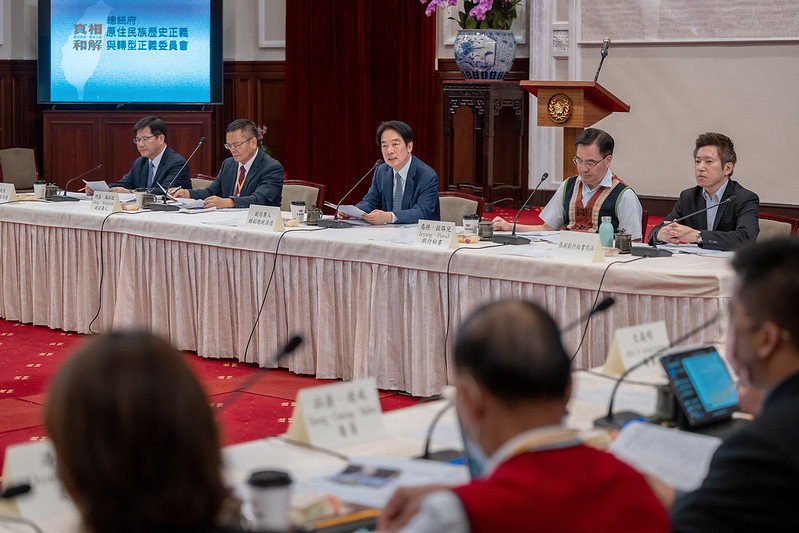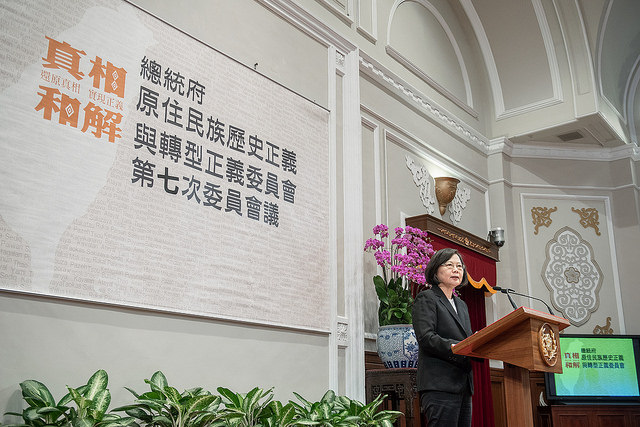News & activities
 News releases
News releases
On the afternoon of September 28, President Tsai Ing-wen presided over the seventh meeting of the Presidential Office Indigenous Historical Justice and Transitional Justice Committee ("the Committee"). She emphasized that the goal of transitional justice is to restore the truth, and that discussing the history of oppression suffered by indigenous peoples will help us realize that to safeguard their education, languages, and cultures is to uphold fairness and justice. We have to both honestly face our history, and honestly reflect on our nation's mistakes, to address transitional justice from the authoritarian era and the even broader issues of transitional justice for indigenous peoples.
The following is a translation of President Tsai's remarks:
Today is Teachers Day, and many people on the Committee have worked as teachers or school principals, or have devoted themselves to teaching and transmitting the languages and cultures of the various indigenous communities. So first, let me wish everyone a Happy Teachers Day!
The issue of education, or more precisely, the promotion of education for indigenous peoples, has received considerable attention in the past few Committee meetings.
I can understand everyone's concerns. For a long time, the nation didn't pay enough attention to the cultures, languages, and historical viewpoints of our indigenous peoples. Past governments even adopted measures that demeaned and suppressed indigenous languages and cultures.
Therefore, today we have specially arranged for the Committee's thematic subcommittees on languages and culture to present their staged work reports. Agilasay Pakawyan (林志興), convener of the subcommittee on culture, will explain the preliminary survey results from their work over the past year or so, based on the subcommittee team's work outline about how the post-WWII "assimilation education" policy suppressed indigenous cultures.
Masegeseg Z. Gadu (童春發), convener of the subcommittee on languages, will discuss the impact of prohibiting indigenous school children from using their tribal languages during the "National Language (Mandarin) Movement" promoted by the government after WWII.
To emphasize the validity of indigenous languages, convener Masegeseg Z. Gadu will deliver his entire report in the Paiwan language with simultaneous interpretation. The government should encourage all indigenous peoples to use their mother tongues to express their ideas in formal settings.
Examination of the report topics will then continue, as some Committee members expressed concerns in their discussion proposals for this meeting about progress in implementing the indigenous languages policy.
In fact, over the past two-plus years, we have passed the "Indigenous Languages Development Act" and launched Alian 96.3, the Indigenous Radio Station. The Council of Indigenous Peoples and the Ministry of Education are also studying a comprehensive overhaul of the Education Act for Indigenous Peoples.
But I think we need to hear what every Committee member has to say about whether these laws and policies have been implemented in indigenous communities, and fully meet the demands of indigenous peoples. So in just a bit, I'll listen carefully to everyone's opinions.
It is especially significant that the reports and discussions on culture and linguistic education have been arranged on Teachers Day.
The goal of transitional justice is to restore the truth. Discussion of the history of oppression suffered by indigenous peoples will help us understand that the protection of indigenous peoples' education, languages, and cultures is not "something extra." On the contrary, it is necessary to uphold fairness and justice.
Another goal of transitional justice is to give the next generation a better future. Past governments were wrong to restrict the right of people to use their mother tongues, and enjoy the right to have their own cultures and lifestyles. Today we should keep these lessons in mind, so that our children will not suffer that kind of treatment.
I want to ask everyone to think about exactly why Taiwan's society needs to achieve transitional justice. I believe that we have to both honestly face our history, and honestly reflect on our nation's mistakes, to address transitional justice from the authoritarian era and the even broader issues of transitional justice for indigenous peoples.
Finally, starting with this Committee meeting, the new representatives of the Seediq and the Hla'alua peoples are joining us. Let's welcome new Committee members Watan Teymu (潘杰) and Ko Hsin-hsiung(葛新雄).
Following her address, the president presented Committee members Watan Teymu from the Seediq and Ko Hsin-hsiung from the Hla'alua with their letters of appointment. She also heard work reports from the subcommittees on culture and languages, and exchanged views with Committee members on related proposals.
